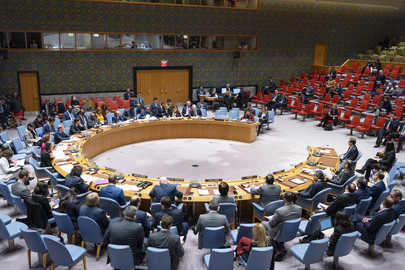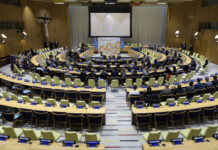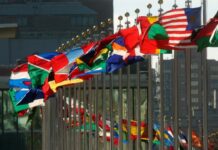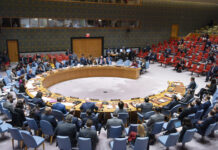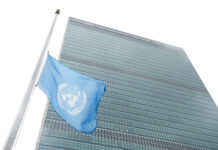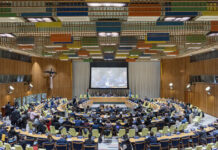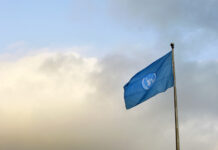This is the News in Brief from the United Nations.
No let-up in Gaza violence as war passes 100-day mark
After more than 100 days of war in Gaza and no let-up in sight, top UN aid officials on Monday expressed renewed fears of famine and deaths from preventable diseases unless there is a “fundamental step change” in aid access.
“People in Gaza risk dying of hunger just miles from trucks filled with food,” the head of the UN World Food Programme (WFP) Cindy McCain warned.
The appeal backed by the UN Children’s Fund (UNICEF) and the UN health agency WHO reflects dire concerns for the entire population of Gaza which now relies on aid to survive, because of an Israeli blockade put in place after the 7 October terror attacks.
In a statement, the three UN agencies called for new entry routes into Gaza, including Ashdod port, which would enable significantly larger quantities of aid to be shipped in and then trucked directly to badly affected northern regions of Gaza.
The development came as new images released late Sunday showed three of the 250 hostages initially captured from southern Israeli communities in the Hamas-led attacks.
It is reportedly the first time the three abductees have been seen in nearly 100 days; more than 130 hostages are still believed to be held in the Palestinian enclave.
Ukraine war: UN launches $4.2 billion appeal to help most vulnerable
Nearly two years since Russian forces invaded Ukraine, UN relief chief Martin Griffiths on Monday issued an urgent appeal with the UN refugee agency, UNHCR, for $4.2 billion to help millions of people impacted by the conflict.
Today, 14.6 million people in the country need humanitarian assistance – or 40 per cent of the population – and 6.3 million have fled beyond its borders as refugees.
“We must stay the course” with the people of Ukraine, Mr. Griffiths told journalists in Geneva.
“No place in Ukraine is untouched by the war and the wave of attacks that began just before the new year as we saw are witness to the devastating civilian cost of the war.”
Mr. Griffiths highlighted “constant bombardment” along the front line with Russia and in Ukrainian cities in recent weeks, particularly in the Donetsk and Kharkiv regions, where families now shelter in damaged houses with no piped water, gas or electricity.
166 million people require health assistance in 2024: WHO
A new appeal, this time, from the UN World Health Organization (WHO) on Monday for $1.5 billion to protect the health of most vulnerable people in 41 emergencies this year.
The WHO emergency appeal aims to reach more than 87 million people.
It reflects just how complex emergencies have become and which increasingly involve conflict, climate change and economic instability, which fuel displacement, hunger and inequality.
“For those facing emergencies, disruptions to health services often mean the difference between life and death,” the WHO said, as it noted that 166 million people around the world need health support in new and ongoing emergencies.
Daniel Johnson, UN News.
Source of original article: United Nations (news.un.org). Photo credit: UN. The content of this article does not necessarily reflect the views or opinion of Global Diaspora News (www.globaldiasporanews.com).
To submit your press release: (https://www.globaldiasporanews.com/pr).
To advertise on Global Diaspora News: (www.globaldiasporanews.com/ads).
Sign up to Global Diaspora News newsletter (https://www.globaldiasporanews.com/newsletter/) to start receiving updates and opportunities directly in your email inbox for free.


